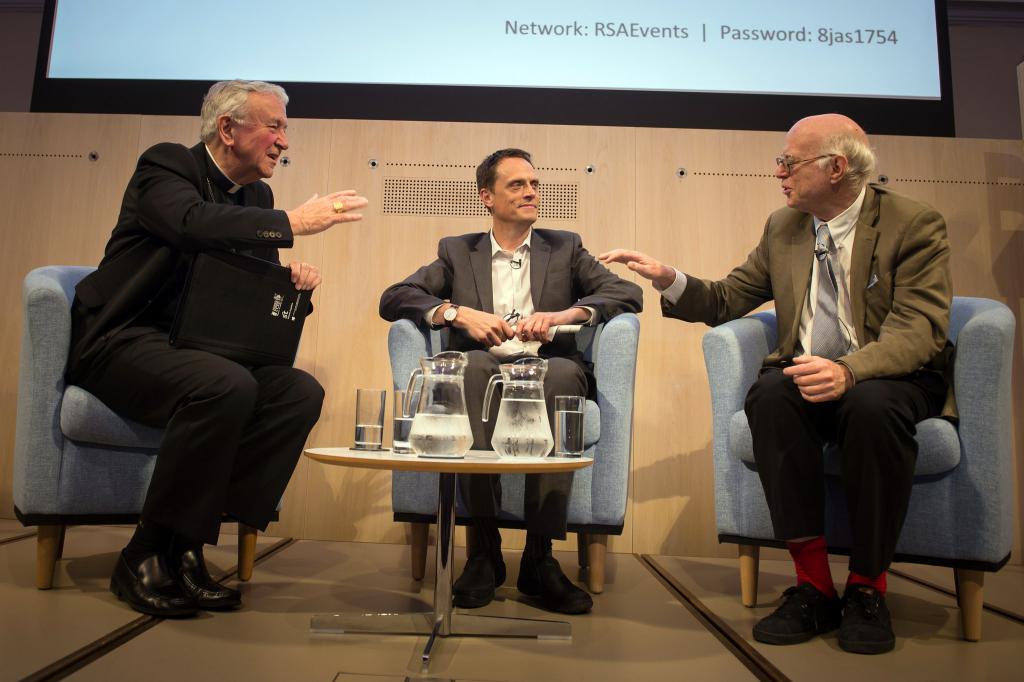On 17 June 2015, Cardinal Vincent gave the opening address at the RSA (the Royal Society for the encouragements of Arts, Manufactures and Commerce) on the topic of finding generative capacities of hope. Also speaking was Richard Sennett, Professor of Sociology at the London School of Economics. The forum was then opened up to discussion and questions from the audience, both present on the evening and joining virtually via the web.
Introducing the evening, Chief Executive of the RSA Matthew Taylor explained that 'rapid global, social and technological change offers the promise of greater freedom, empowerment, creative expression and choice to expanding numbers of people around the world' and 'yet many millions more are denied access to the fullness of human flourishing'.
He then asked 'where do we find sources of the kind of hope that can generate positive action and progress for humanity?' To this, Cardinal Vincent and Professor Sennett were invited to present answers.
In his remarks, Cardinal Vincent explained that hope is 'not the same as optimism' but, alluding to St Thomas Aquinas, 'a movement of the will, a striving towards such a future good: an appetite which stirs up confidence and grants assurance.'
He said that 'hope moves us to become pilgrims. A hope-filled person is spurred into action when faced with something desirable, yet hard to achieve.'
He spoke about the 'fragments of hope' that we see all round, 'the experiences of our daily lives to which we respond with warmth of heart, a quiet smile of gratitude and admiration'.
The Cardinal warned that these fragments can be stifled 'by the culture of cynicism' and 'our culture's embrace of relativism'. Yet, he said, 'we may have to give more attention to those fragments which, if brought together, have the capacity to defeat both cynicism and relativism.'
He reflected on the three aspects of human relationship: the family, the social sphere, and the 'capacity of art to stimulate hope'.
Referring back to St Thomas Aquinas, Cardinal Vincent said: 'Hope has as its ultimate object our radical happiness. That happiness comes with our presence before and within God. Hope directs us towards God, the source and summit of all good: Goodness itself.'
Professor Sennett then presented the notion of hope and goodness from the Jewish perspective. He emphasised the importance of the link between hope and will, especially the will to do good. He explained that hope comes from the actions of those who seek to help others, to do good to others, even in the face of lack of hope.
A further discussion ensued along with questions from the audience.
The full text of Cardinal Vincent's address can be read here.
The event can be viewed in its entirety here.




